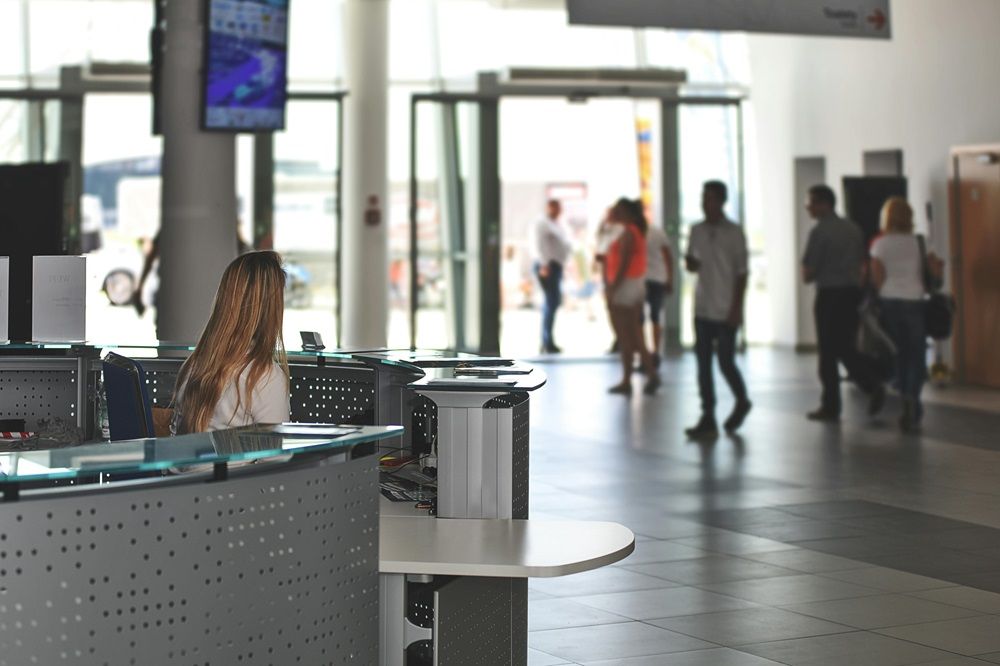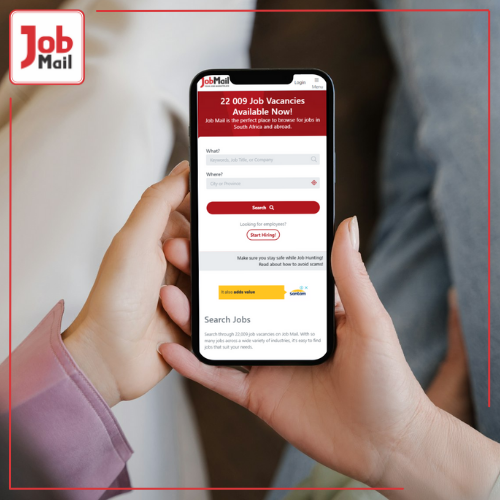Are you gearing up for a receptionist job interview and feeling a mix of excitement and nerves? You're not alone. The role of a receptionist is crucial in any organisation, as you are the first point of contact for clients and visitors. Preparing thoroughly for your interview can make all the difference. In this guide, we'll walk you through the essential steps to help you shine in your interview and secure the job. Plus, if you're on the lookout for Administration/PA/Secretary positions, don’t forget to explore opportunities on Job Mail.
 Photo by Proxyclick Visitor Management System on Pexels
Photo by Proxyclick Visitor Management System on Pexels
Tips to Prepare for a Receptionist Job Interview
1. Understand the Role and Responsibilities
Before heading to your interview, ensure you have a clear understanding of what the role entails. A receptionist is often the face of the company, handling everything from greeting clients to managing phone calls and scheduling appointments. Research the specific responsibilities for the position you’ve applied for, as duties can vary depending on the industry. Familiarising yourself with the job description allows you to tailor your responses to showcase your suitability for the role.
2. Research the Company
One of the most important steps in preparing for a receptionist job interview is researching the company. Employers appreciate candidates who take the time to learn about their business. Visit the company’s website, read up on their history, mission, and values, and check out their latest news or blog posts. If the company is active on social media, take a look at their profiles to get a sense of their culture. This knowledge will help you answer questions more confidently and demonstrate your genuine interest in working there.
3. Prepare Your Answers to Common Questions
Receptionist interviews often include a mix of general and role-specific questions. Be ready to answer common interview questions like:
- "Why do you want to work here?": Use your research to explain why the company appeals to you.
- "What are your strengths and weaknesses?": Highlight strengths that align with receptionist duties, such as communication skills or attention to detail.
- "How do you handle difficult clients or stressful situations?": Provide examples from past experiences where you successfully managed challenging scenarios.
Practicing your responses out loud can help you articulate them more clearly during the actual interview.
 Photo by PhotoMIX Company on Pexels
Photo by PhotoMIX Company on Pexels
4. Showcase Your Soft Skills
Soft skills are vital for a receptionist role. These include communication, organisation, time management, and problem-solving abilities. During your interview, make sure to emphasize these skills by providing examples of how you’ve applied them in previous roles. For instance, if you’ve managed a busy front desk before, explain how your organisational skills helped you keep everything running smoothly. Employers want to see that you not only have the technical skills for the job but also the interpersonal skills to handle the demands of the position.
5. Dress Professionally
First impressions matter, especially in a receptionist job interview where your appearance will be closely scrutinised. Dress professionally in business attire, opting for neutral colors and clean lines. Make sure your outfit is neat, and avoid anything too flashy or casual. Your goal is to present yourself as someone who is polished, reliable, and ready to represent the company well.
6. Bring Relevant Documents
Be prepared by bringing several copies of your resume, a list of references, and any other relevant documents, such as certificates or a portfolio, if applicable. Having these on hand shows that you are organised and professional. It also provides the interviewer with the information they might need to further evaluate your qualifications.
7. Practice Good Body Language
Your body language during the interview is just as important as your answers. Maintain good posture, make eye contact, and offer a firm handshake. Smiling and nodding occasionally while the interviewer speaks shows that you are engaged and attentive. Avoid fidgeting, crossing your arms, or looking at your watch, as these can give off the impression that you are disinterested or anxious.
8. Prepare Questions to Ask the Interviewer
At the end of your interview, you will likely be given the chance to ask questions. Prepare a few thoughtful questions in advance. These could include:
- "Can you tell me more about the day-to-day responsibilities of this role?"
- "What are the biggest challenges faced by the receptionist in this company?"
- "How do you measure success in this role?"
Asking questions not only shows your interest in the position but also helps you determine if the job is the right fit for you.
9. Follow Up After the Interview
After your receptionist job interview, it's important to follow up with a thank-you email. Express your gratitude for the opportunity to interview and reiterate your enthusiasm for the role. This small gesture can leave a lasting impression and set you apart from other candidates.
A receptionist job interview is your chance to demonstrate your suitability for a role that requires a blend of professionalism, communication skills, and organisational abilities. By thoroughly preparing and presenting yourself confidently, you can make a strong impression on potential employers. Remember to research the company, practice your answers, and dress appropriately. And if you’re still exploring job opportunities, be sure to check out the latest Administration/PA/Secretary positions openings on Job Mail.




